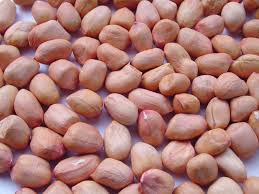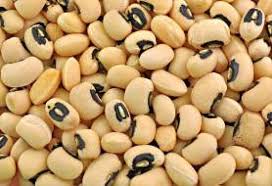Pasta Manufacturing in Nigeria; The Feasibility Report.

Pasta is a versatile, widely consumed food made primarily from durum wheat semolina (or other grains) and water. In some instances, eggs may be added, depending on the type of pasta being produced.
The dough is shaped into various forms and then either dried or cooked before consumption. The variety of pasta types depends on regional preferences, ingredient variations, and production techniques, resulting in diverse forms and uses.
Pasta is highly valued for its nutritional content, providing a rich source of carbohydrates and energy. It is also commonly paired with sauces, meats, vegetables, and cheeses to create fulfilling meals.
The global pasta market has continued to grow, and this trend has been mirrored in Nigeria, where pasta production and consumption have expanded significantly.
Pasta is available in a wide range of shapes and sizes, each serving a unique purpose in cooking. Some of the most popular types include:
Spaghetti: Long and thin, this is perhaps the most iconic type of pasta. It is perfect for pairing with tomato-based sauces, meatballs, or creamy sauces.
Penne: A tube-shaped pasta with diagonal cuts, ideal for thick sauces or baked pasta dishes.
Fusilli: Spiral-shaped pasta that is excellent for holding sauces, making it ideal for dishes like pasta salads.
Macaroni: Small, tube-shaped pasta often used in macaroni and cheese or pasta salads.
Lasagna: Wide, flat sheets of pasta that are layered with cheese, meat, and tomato sauce in lasagna dishes.
Farfalle: Bowtie-shaped pasta commonly used in light sauces or pasta salads.
Ravioli: Stuffed pasta, filled with various ingredients such as cheese, meat, or vegetables.
In addition to these widely known shapes, there are many regional pasta varieties such as orecchiette, cavatappi, and rotini, each designed to hold specific types of sauces.
Pasta can be categorized into three main types, each defined by the processing and preservation methods used:
Dried Pasta: Produced by extruding dough through molds and dehydrating it. Examples include spaghetti, penne, and macaroni.
Chilled (Fresh) Pasta: Made with eggs and a higher moisture content, this pasta is sold refrigerated and should be consumed within a few days. Common types include fettuccine and ravioli.
Canned Pasta: Pre-cooked and preserved in sauces, typically ready-to-eat. Popular in Western markets, such as canned spaghetti in tomato sauce.
The production of pasta in Nigeria primarily involves the use of durum wheat flour, although other grains such as rice and maize can be used in some cases. The pasta manufacturing process in Nigeria typically involves several key steps:
Milling of Wheat: The first stage in pasta production is grinding wheat into semolina flour. Most pasta manufacturers in Nigeria currently import durum wheat, although there are efforts underway to boost local wheat farming.
Mixing and Kneading: Semolina flour is mixed with water to form dough. The dough is kneaded to achieve the required consistency for shaping.
Extrusion: The dough is passed through an extrusion machine, which shapes it into various pasta forms like spaghetti, penne, macaroni, and fusilli.
Drying: After the pasta is shaped, it is dried in industrial ovens to preserve it and ensure a long shelf life.
Packaging: Once dried, the pasta is cooled, portioned, and packaged for retail distribution.
The global pasta market has seen robust growth, driven by factors such as increasing demand for convenient, nutritious food options. In 2023, the market was valued at USD 68.35 billion and is projected to reach USD 100.24 billion by 2032, growing at a compound annual growth rate (CAGR) of 5.47% from 2024 to 2032.
Key trends in the global pasta industry include:
Rising Demand for Healthier Options: Consumers are increasingly seeking whole grain, organic, and gluten-free pasta options as part of their shift toward healthier eating habits.
Product Innovation: Pasta manufacturers are introducing new flavors, protein-enriched versions, and plant-based alternatives to cater to changing consumer tastes.
Growth of Instant Pasta: The rising demand for ready-to-cook and instant pasta meals is expanding market reach, especially in fast-paced urban environments.
E-commerce Expansion: Online retail platforms are making pasta products more accessible, offering a wide variety of options to consumers.
Sustainability Initiatives: Pasta manufacturers are investing in eco-friendly packaging and sustainable wheat farming practices to reduce their environmental impact.
Pasta was introduced to Nigeria in the mid-20th century, initially through European influences. However, it was not until the 1970s that local production of pasta began, primarily to reduce dependence on imports.
Early pioneers in pasta production in Nigeria include companies like Dangote Pasta, which was established in the 1990s, and Honeywell Flour Mills, both of which played key roles in the industrialization of pasta production in the country.
Today, pasta has become a staple food in Nigeria, often served with stews, vegetables, and various types of meat. The Nigerian pasta market has grown significantly due to an increase in local production and rising consumer demand.
Industry estimates project that the Nigerian pasta market will grow by 10.37% between 2025 and 2029, reaching a market volume of USD 8.71 billion by 2029.
Several factors are driving this growth:
A Rising Middle Class: As Nigeria’s middle class expands, so does the demand for affordable and convenient food options like pasta.
Increased Local Production: The growth of domestic pasta production has led to reduced reliance on imports, driving down costs and making pasta more affordable for consumers.
Urbanization: As more Nigerians move to urban areas, the demand for quick and easy meal options such as pasta continues to rise.
Government Policies: The Nigerian government has implemented policies promoting domestic food production and agribusiness investment, which have further fueled pasta production growth.
Key Players in the Nigerian Pasta Industry
Several key players dominate Nigeria’s pasta production market, each contributing to the sector’s growth:
Golden Penny Pasta (Flour Mills of Nigeria Plc): One of the leading pasta brands in Nigeria, offering a variety of pasta products.
Honeywell Pasta (Honeywell Flour Mills Plc): Another major producer with a strong presence in the Nigerian pasta market.
Crown Pasta (Crown Flour Mill Ltd.): Known for producing high-quality pasta products.
Bua Pasta (BUA Group): A rapidly growing pasta brand that is gaining popularity in Nigeria’s expanding market.
These companies have made significant investments in local pasta production, thereby creating jobs, reducing import dependency, and making pasta more accessible to the Nigerian population.
Despite the promising growth of the pasta production sector in Nigeria, several challenges remain:
High Production Costs: The cost of raw materials, especially durum wheat, can fluctuate due to reliance on imports. This affects the overall cost of production, potentially leading to higher prices for consumers.
Infrastructure Deficits: Nigeria’s infrastructural limitations, such as poor transportation networks and inadequate electricity, present challenges for pasta manufacturers.
Currency Fluctuations: The volatility of the Nigerian naira can impact the cost of imported raw materials, further increasing production costs.
The Nigerian pasta industry holds significant potential for growth, and strategic investments in areas such as wheat farming, technology, and product innovation will play a key role in its future development.
Local Wheat Farming: Investing in local wheat farming could help reduce Nigeria’s dependency on wheat imports and lower production costs for pasta manufacturers.
Technological Advancements: Implementing modern manufacturing technologies will help improve efficiency, reduce waste, and ensure consistent product quality.
Product Diversification: Expanding the range of pasta products, including gluten-free and whole grain options, will cater to the growing health-conscious market.
Pasta production in Nigeria presents a growing business opportunity, fueled by a rising middle class, increasing demand for convenient meal options, and expanding local production capacity.
While challenges such as high production costs and infrastructure deficits persist, strategic investments in local wheat farming, technology, and product development will drive further growth. Nigeria is poised to become a key player in Africa’s pasta market, and with continued innovation and local investment, the country’s pasta industry is set for long-term success.
Table of Contents
EXECUTIVE SUMMARY 1. Business Overview 1.1 Description of the Business 1.2 Vision and Mission Statement 1.3 Business Objective 1.4 Value Proposition 1.5 Critical Success Factor of the Business 1.6 Current Status of Business 1.7 Description of the Business Industry 1.8 Contribution to Local and National Economy 2. Marketing Plan 2.1 Description of product 2.2 Location 2.3 The Opportunity 2.4 Pricing Strategy 2.5 Target Market 2.6 Distribution and Delivery Strategy 2.7 Promotional Strategy 2.8 Competition 3. Technical Analysis 3.1 Description of the Location 3.2 Raw Materials 3.3 Production Technology / Equipment 3.4 Production Process 3.5 Production Cost 3.6 Stock Control Process 3.7 Pre-Operating activities and expenses 3.7.1 Operating Activities and Expenses 3.8 Project Implementation Schedule 4.0 Organizational and Management Plan 4.1 Ownership of the business 4.2 Profile of the promoters 4.3 Key Management Staff 4.3.1 Strategic Business Units 4.3.2 Management Support Units 4.4 Details of salary schedule 5. Financial Plan 5.1 Financial Assumption 5.2 Start- up Capital Estimation 5.3 Source of Capital 5.4 Security of Loan 5.5 Loan Repayment Plan 5.6 Financial Projections 6.0 Business Risk and Mitigation Factors 6.1 Business Risks 6.2 SWOT Analysis
Project Specification:
Additional Info
Get this Report
Direct bank transfer
To order the report, Please do pay the sum of ₦350,000 into
Account Name : Foraminifera Market Research Ltd
Account Number : 274 20 569 37
Account Name : Foraminifera Market Research Ltd
Account Number : 101 76 603 95
Account Name : Foraminifera Ventures
Account Number : 011 66 066 32
Make your payment directly into our bank account. Please use your Order ID as the payment reference. Your order will not be shipped until the funds have cleared in our account.
Instructions
After payment call us on 01 -29 52 413 / 08033782777 or email us at foraminiferamarketresearch@yahoo.com with the payment details. After payment confirmation, the soft copy of the report would be sent to you within 24 hours.



